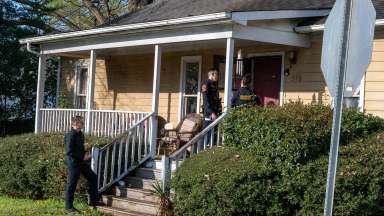Jump To:
Domestic violence is a pervasive issue that cannot be ignored. By fostering open conversations, educating ourselves, and supporting those in need, we can create a safer environment for all members of our community. Everyone deserves to feel safe and supported in their own home. It is time to act, to speak out, and to ensure that domestic violence is addressed firmly and compassionately.
If you or someone you know is in danger, please reach out to local authorities or organizations that can assist. You are not alone; help is available.
Family Violence Intervention Unit
Understanding Domestic Violence in Our Community: A Call to Action
Domestic violence is a pressing issue that affects countless individuals and families within our community. Often shrouded in stigma and silence, it is vital to bring this serious matter into the light, fostering a greater understanding and encouraging those impacted to seek support.
What is Domestic Violence?
Domestic violence is more than just physical abuse; it encompasses a range of behaviors used by one partner to gain or maintain control over another. This includes emotional abuse, psychological manipulation, financial control, and sexual violence. The impact is profound, causing long-lasting trauma not only to victims but also to children who witness these situations.
Statistics That Matter
Recent studies indicate that approximately one in four women and one in nine men experience severe intimate partner physical violence. These statistics reflect only reported cases, indicating that the true numbers may be even higher, given the stigma and fear that often prevent individuals from speaking out.
The Local Landscape
In our community, domestic violence is a significant concern. Local law enforcement reports have shown an increase in calls related to domestic disputes. Community organizations, such as women's shelters and support groups, are reporting higher demand for their services as awareness of these issues continues to grow. It is crucial to recognize that domestic violence does not discriminate; it can happen to anyone, regardless of age, race, socioeconomic status, or gender.
Signs of Domestic Violence
Recognizing the signs of domestic violence is the first step in addressing this issue. Some warning signs may include:
- Changes in behavior or personality of a partner
- Isolation from friends and family
- Frequent injuries or unexplained absences
- Financial dependency or restriction on access to finances
- Fearfulness around their partner
If you or someone you know is experiencing these signs, it is essential to reach out for help.
Resources Available
Our community is equipped with various resources to assist victims of domestic violence. Organizations such as local shelters, hotlines, and counseling services provide confidential support and can help navigate options for safety and recovery. Some local resources include:
- The Domestic Violence Hotline: Available 24/7 for immediate assistance and guidance.
- Local Shelters: Providing safe spaces for individuals and families seeking refuge.
- Counseling Services: Offering emotional support and recovery programs.
How to Help
Combating domestic violence requires a collective effort. Community members can help by:
- Educating Themselves: Understanding the impact and signs of domestic violence.
- Being an Ally: Offering support to those affected, whether through listening, accompanying them to seek help, or helping them explore their options.
- Advocating for Change: Supporting local organizations and initiatives aimed at raising awareness and providing resources for victims.
Partnerships
- Interact of Wake County
- Triangle Family Services
- Wake County Domestic Violence Task Force
- North Carolina Victim’s Compensation Services
- North Carolina Victim’s Assistance Network
- Legal Aid of North Carolina
- Wake County Sheriff’s Office
- Wake County District Attorney’s Office
- United States Attorney’s Office





